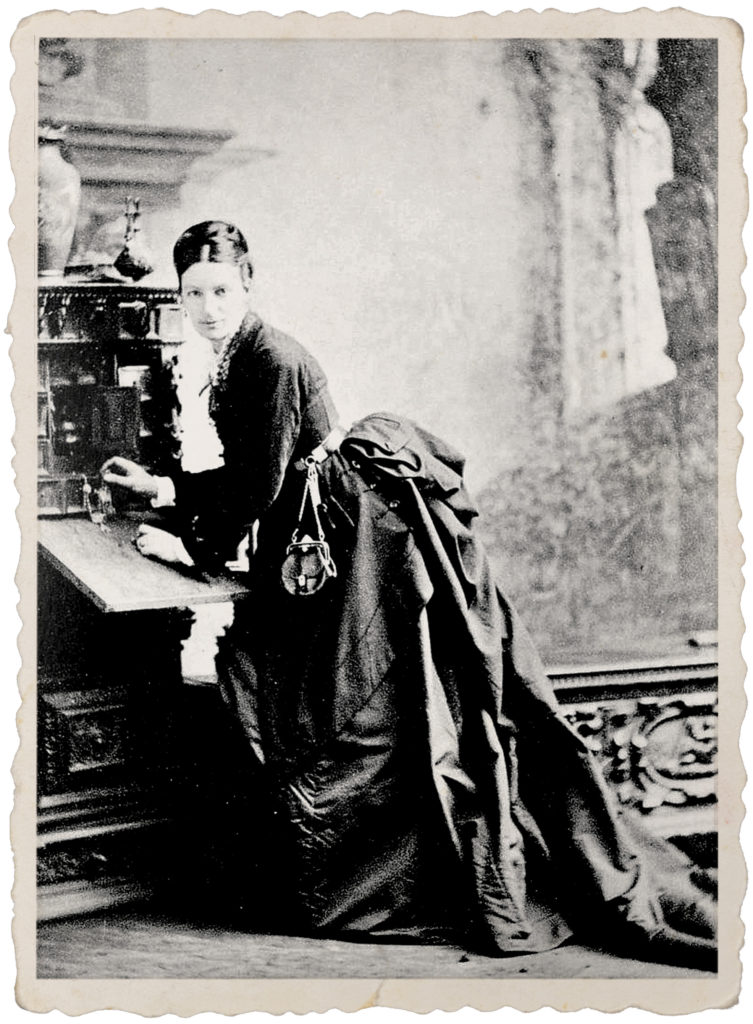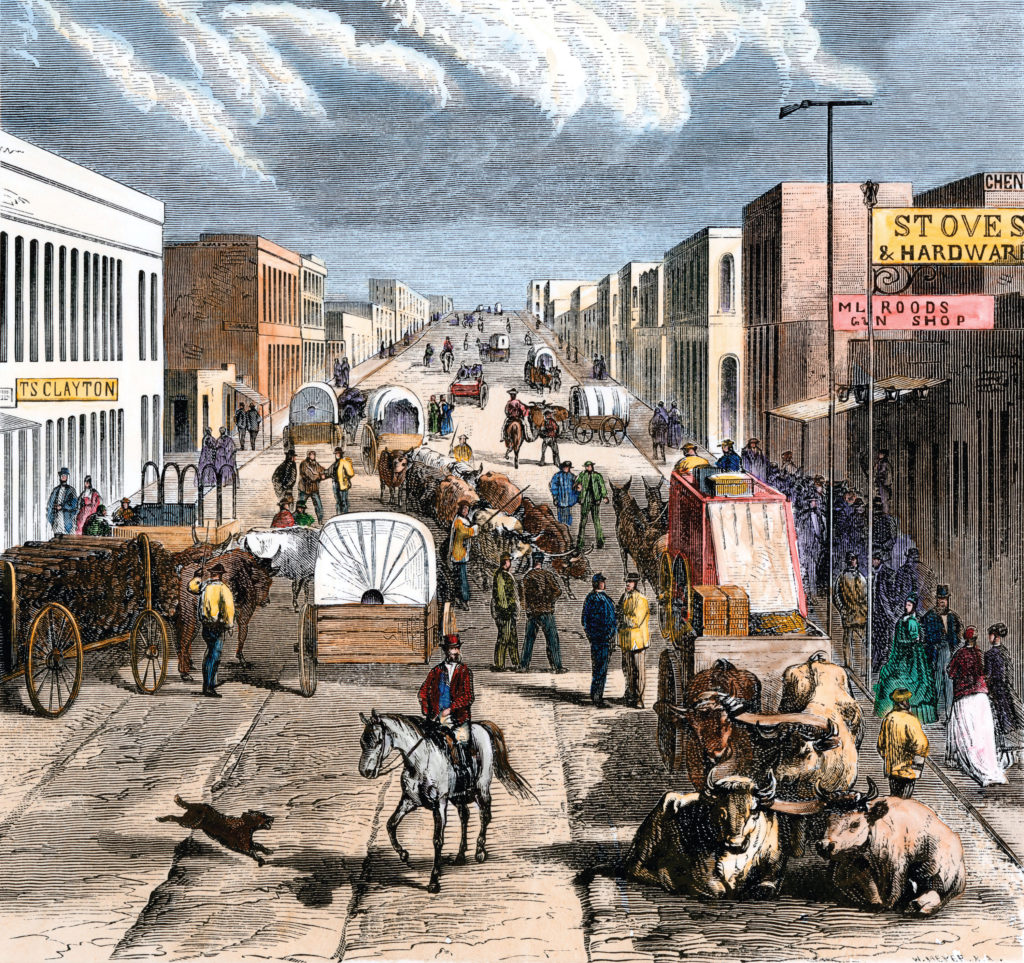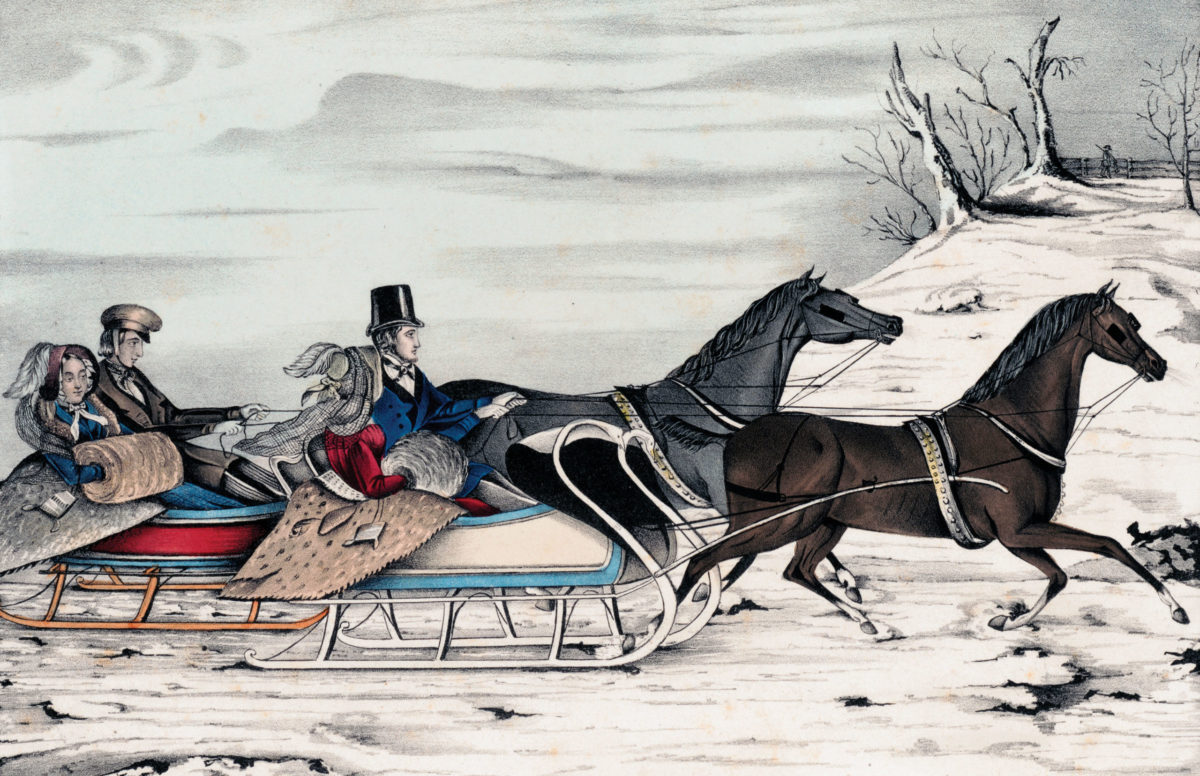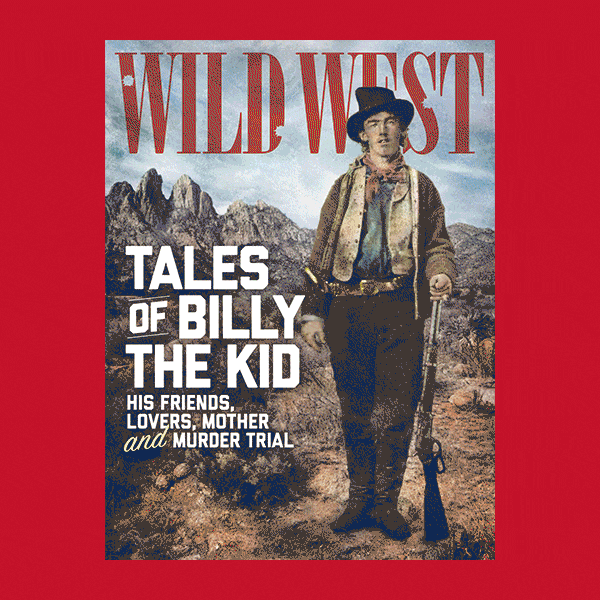Memories of Christmases past run deep through the colorful history of Denver, among the first of the Great Plains settlements to urbanize. Englishwoman Rose Georgina Kingsley—eldest daughter of controversial Anglican priest, social reformer and writer Charles Kingsley and sister of Victorian novelist Mary St. Leger Kingsley (pseudonym Lucas Malet)—journaled one of the earliest recollections of how Denverites celebrated yuletide.
In 1870 John Evans completed the Denver Pacific Railway, linking its namesake city to Cheyenne, Wyoming Territory, on the Union Pacific section of the transcontinental railroad. That same year William Jackson Palmer’s Kansas Pacific reached Denver. Their completion buoyed the flagging economy that had gripped postwar Colorado Territory with the exhaustion of known placer deposits, for the railroads made it possible to bring in industrial smelting and mining equipment and thus exploit subterranean veins of gold and silver. Denver’s economy predictably boomed, as did its affluent residential neighborhoods. The rails also brought wealthy Europeans fascinated by the prospect of seeing the Western frontier firsthand. Among them was Rose Kingsley.

Arriving on the Front Range of the Rocky Mountains just before Christmas 1871 to visit brother Maurice, a recent Denver transplant, Rose vividly described the sights and sounds of winter revelry. Her travels in Colorado Territory, which predate those of her better-known countrywoman Isabella Bird by two years, brought Kingsley face to face with a territory and city on the verge of making their mark. Considering the florid writing of many Victorian-era authors, the straightforward prose of Rose’s journal is refreshing. Consider the following description of her enchantment with the holiday activity around her:
“Denver looks wintry enough under 6 inches to a foot of snow; but it is full of life and bustle. The toy shops are gay with preparations for Christmas trees; the candy stores filled with the most attractive sweetmeats; the furriers display beaver coats and mink, ermine and sable, to tempt the cold passerby; and in the butchers’ shops hang, besides the ordinary beef and mutton, buffalo, black-tailed deer, antelope, Rocky Mountain sheep, quails, partridges and prairie chicken.”
Strolling uptown from the commercial center along Blake Street, Kingsley entered Denver’s growing residential section along 14th Street past Larimer. “The streets are full of sleighs, each horse with its collar of bells,” she wrote, “and all the little boys have manufactured or bought little sleds, which they tie to the back of any passing cart or carriage and get whisked along the streets till some sharp turn or unusual roughness in the road upsets them.” The well-bred Englishwoman was particularly enamored with the unconstraint of Denver society. “In the frank, unconventional state of society which exists in the West, friendships are made much more easily than even in the Eastern states or, still more, in our English society.”
No Victorian Christmas Eve would be complete without a two-horse open sleigh ride. As the mercury had dipped to 2 degrees below zero, Rose and Maurice bundled up beneath wool blankets, buffalo robes and plush sable furs. Leaving the city behind, the sleigh skimmed across the open prairie beneath a bright moon, the horses fairly flying over the smooth, sparkling snow with silver bells jingling in the frosty air. When the siblings arrived home around 11 p.m., Rose recalled, Maurice “looked just like Santa Claus, with his moustache and hair all snowy white from his frozen breath.”
Christmas Day dawned sunny and warm, leaving Rose and Maurice to pick their way through rivers of melting snow to the Masonic Hall, temporary home of the year-old Trinity Episcopal Church. Until their church building was completed several years later, British-born Anglican Denverites attended services at the hall, which on the outside reminded the English pastor’s daughter of a country squire’s coach house. Its interior had been tastefully decorated with fresh, fragrant evergreens from the mountains.

Following services Rose accepted an invitation to Christmas dinner at a fashionable home in which another friend boarded. After dinner of “the orthodox turkey and mince pie,” guests were summoned to the spacious parlor, where they gathered around a fresh spruce draped with strings of raw cranberries and popcorn. Once the host had distributed presents to his household servants, he and his guests passed the evening singing traditional carols and playing such games as blind man’s bluff and charades. Best of all was snap-dragon, the most popular of Victorian yuletide parlor games. Once the lights were dimmed, a shallow bowl filled with brandy-soaked raisins was set on the floor, and the liquor ignited. At a signal players took to snatching up flaming raisins from the bowl and popping them into their mouths. The idea was to close one’s mouth over a burning currant and extinguish the flame. One tradition held that the person who snatched up the most raisins would meet their true love within a year. Alas, Rose never married.
To end the near perfect evening, the master of the house gallantly began the first verse of “God Save the Queen.” Abashedly unfamiliar with the lyrics, he soon relinquished center stage to Rose. “It sent a thrill over me,” she wrote, “hearing it a thousand miles west of the Mississippi for the first time since leaving England. And then I was made to sing it all through; for, though the tune is familiar enough in America, no one present knew the right words.”
In 1874 Kingsley published her recollections of that memorable Denver Christmas in South by West: Or Winter in the Rocky Mountains and Spring in Mexico, edited by none other than father Charles, the Rev. Kingsley. Soon overshadowed by Bird’s 1879 masterpiece A Lady’s Life in the Rocky Mountains, which many credit for the genesis of Colorado tourism, Kingsley’s book faded into obscurity, though it has since been reprinted. Following statehood, of course, Colorado’s immigrant population multiplied, and present-day Denverites celebrate Christmas traditions from many lands, including merry old England.






